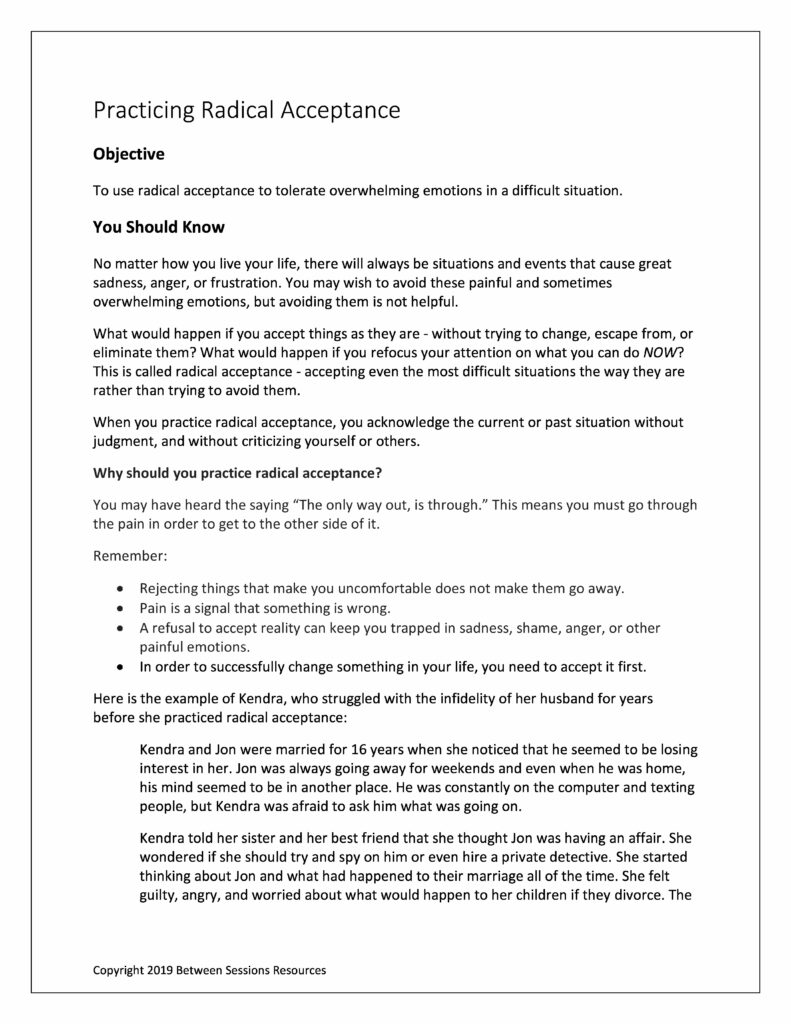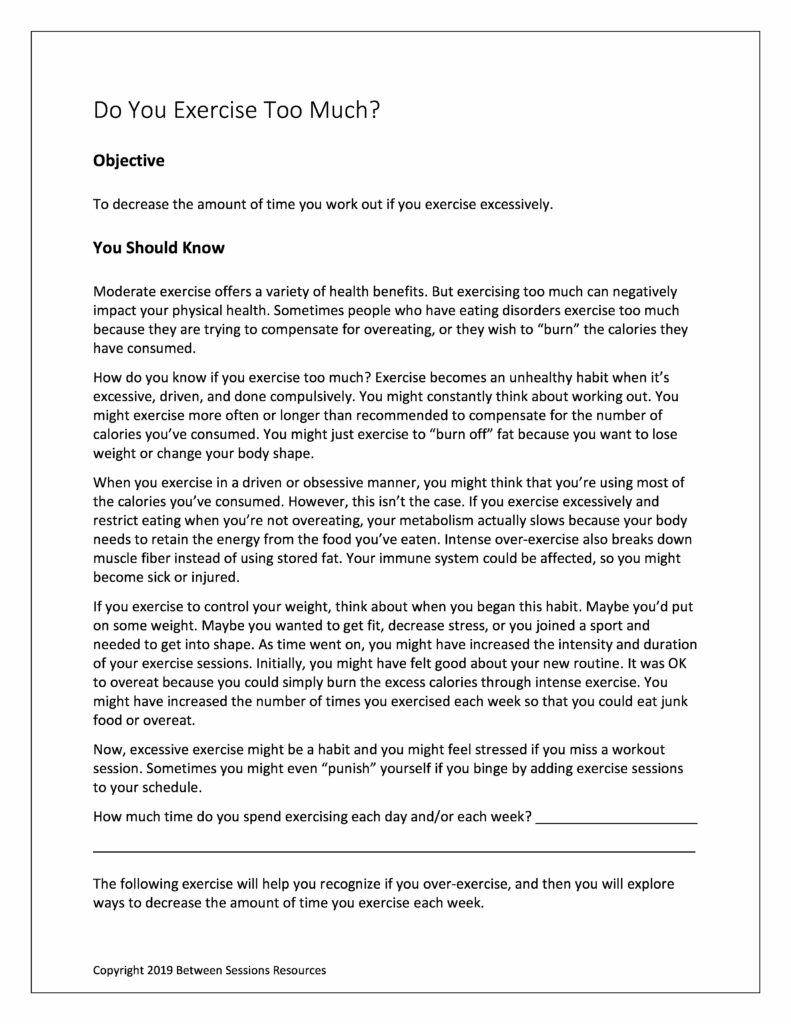Studies tell us that when professionals prescribe therapeutic homework, clients report significantly better outcomes. Our worksheets are derived from evidence-based therapies, and they are designed by experienced professionals. Use the navigation links on the left of this page to view tools in a specific category. Or use the search box at the top of this page to find the exact tool you are looking for.
To modify the tools, click the ‘Send to Client’ button by each tool to open the Psychology Forms Filler. You can then edit the tool as you see fit and either print it out or send it to a client to be filled out online. Click here for a tutorial on using the Psychology Forms Filler.
If you can’t find what you are looking for on this site, please let us know by
clicking here and our team of writers, graphic artists, and therapists will custom-design it for you.
This worksheet, derived from Dialectical Behavioral Therapy (DBT), is designed to help people accept the reality of difficult situations that cause overwhelming emotions. The technique asks people to stay in the present and be self-aware, rather than trying to avoid emotions, blame others, and so on. (grief, bipolar, depression, addiction, 1019)
This worksheet is designed to help someone identify relationship abuse and to find immediate help and support (1019)
This worksheet is designed to help adults identify ways to deal with disorganization. (ADHD, disorganization, 1019)
This worksheet is designed to help people who are feeling hopeless and even suicidal avoid using alcohol or drugs to self-medicate. It asks them to look at situations that trigger their urge to self-medicate and to contact a supportive person to help them through this difficult time. (suicide prevention, depression, alcohol abuse, 0919)
This “card” gives people six simple (and highly researched) questions to ask their spouses about suicidal intention. The guidelines make it easy for a spouse to determine the risk as mild, moderate, or high. Directions are clear for a spouse to immediately seek professional help if a spouse indicates he/she is at a high risk. (suicide prevention, depression, 0919)
This worksheet is designed to help people understand if their grieving has turned into a psychological problem that needs to be addressed (grief, loss, death, 0919)
This worksheet can be used by clients to identify and track the various roles family members can assume when a loved one is experiencing problems with drinking or drug use. (addiction, alcohol abuse, drugs, 0919)
This worksheet is designed to stimulate coping mechanisms in people who feel hopeless, even to the point of being suicidal. The intention of the worksheet is to encourage people to develop a problem-solving attitude. The worksheet asks people to try out five popular problem-solving strategies and then see how often they can be used on a day-to-day basis. (problem-solving, executive functioning skills, coping skills, suicide, depression, 0919)
This worksheet is designed to help people with an eating disorder see the problem with excessive exercise and to find ways to balance their lifestyle. (anorexia, over-exercise, eating disorders, 0919)
This worksheet is designed to be part of a suicide prevention plan which should reduce risk and increase protective factors. (0819)










